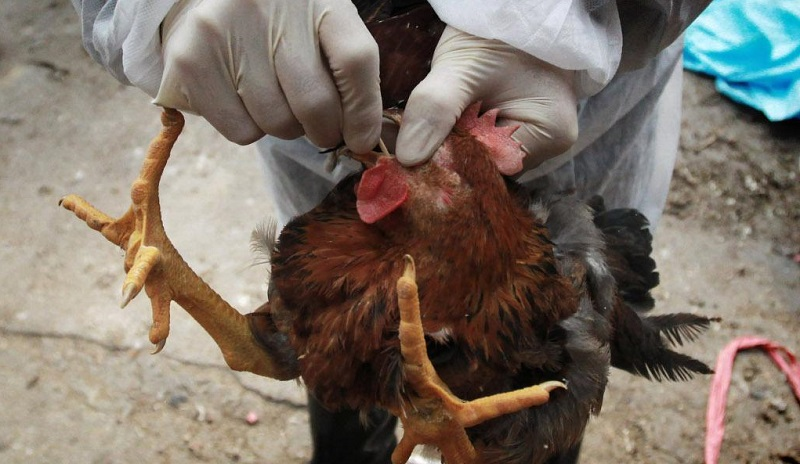Do you know there is an outbreak of the Highly Pathogenic Avian Influenza disease also known as Bird flu in Ghana?
The Ministry of Food and Agriculture confirmed the outbreak in 3 out of the 16 regions of the country in a statement signed by the Director of Veterinary Services Directorate, Dr. Patrick Abakeh on July 16, 2021.
“More than 41, 000 birds have been affected and destroyed so far,” a Risk Communicator at the Veterinary Services Directorate, Dr Benjamin Sasu told GhanaFact on August 5.
Meanwhile, cases of the virus have now been confirmed in a fourth region – Ashanti Region, after some farmers alerted authorities to unusual deaths of domestic poultry.
A breakdown of cases according to regions affected
- In the Greater Accra region, 18 farms have been affected with 19,320 birds destroyed. Out of this, 11,491 died naturally while 7,829 were destroyed by the Veterinary Services Directorate for containment of the disease.
- In the Central region, 3 farms have been affected and 13,657 birds have been affected. 4,100 died naturally and 9,557 were destroyed for containment.
- In the Volta region, only one farm has been affected so far. However, 2,482 birds have been destroyed. (i.e. 495 died naturally and 1,987 were destroyed for containment.)
- The Ashanti region has 3 farms affected and recording 5,992 deaths. Out of that 2,728 died naturally while 3,264 have been destroyed for containment.
“There has been some improvement but still there is more work to be done and the farmers have to play a key role,” Dr Benjamin Sasu stressed.
What is bird flu?
Bird flu is a viral infection that can infect not only birds but also humans and other animals.
“Humans can be infected with avian, swine and other zoonotic influenza viruses, such as avian influenza virus subtypes A(H5N1), A(H7N9), and A(H9N2) and swine influenza virus subtypes A(H1N1), A(H1N2) and A(H3N2).” The World Health Organization(WHO) has stated.
Human infections are primarily acquired through direct contact with infected animals or contaminated environments, but these viruses have not acquired the ability of sustained transmission among humans.
The WHO explains that avian, swine and other zoonotic influenza virus infections in humans may cause diseases ranging from;
- Mild upper respiratory tract infection (fever and cough), early sputum production.
- Rapid progression to severe pneumonia, sepsis with shock, acute respiratory distress syndrome and even death.
- Conjunctivitis, gastrointestinal symptoms, encephalitis and encephalopathy have also been reported to vary degrees depending on subtype.
No human infection in Ghana
Meanwhile, the Veterinary Services Directorate has confirmed that all samples taken from people directly working with the affected birds in Ghana didn’t yield a positive result for the virus.
According to the health agency, appropriate measures have also been taken to ensure that the affected birds are safely disposed of, so they do not get onto the markets.
“We collaborate with other agencies like the Ghana Health Service, the Environmental Protection Agency, the Municipal Assemblies. Once we get there, they give us a place that we can dig deep and then put all the birds, pour chemicals on them and then cover them.” Dr Benjamin Sasu stated.
To ensure public safety, citizens are advised to:
- Report any unusual death of domestic poultry and wild birds to the nearest veterinary office and public authorities.
- Avoid the handling of dead birds with bare hands at all cost.
- Consume only well-cooked poultry meat and poultry products.
First Bird Flu outbreak in Ghana
Ghana first detected cases of Bird Flu in 2007 when the H5N1 virus was confirmed on a small scale poultry farm near the port city of Tema.
Consequently, the Ministry of Food and Agriculture declared the Tema Municipality an Avian Influenza infected area and banned the movement of live birds within and out of the municipality until the virus was contained.
The country has since recorded cases of bird flu disease in 2015, 2016 and 2018.
By: Gifty Tracy Aminu





